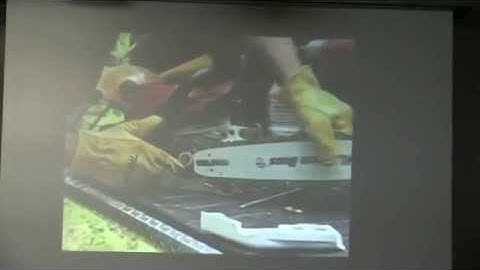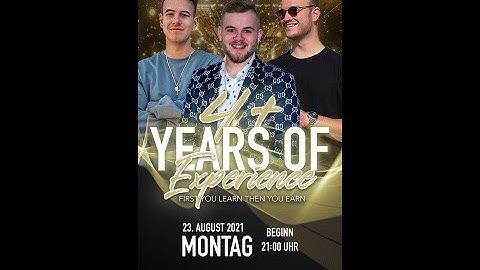The Bull Moose Party was the unofficial name of President Teddy Roosevelt's Progressive Party of 1912. The nickname is said to have arisen from a quote by Theodore Roosevelt. When asked whether he was fit to be president, he responded that he was as fit as a "bull moose." Show Theodore Roosevelt's terms as president of the United States ran from 1901 to 1909. Roosevelt was originally elected vice president on the same ticket as William McKinley in 1900, but in September of 1901, McKinley was assassinated and Roosevelt finished out McKinley's term. He then ran and won the presidency in 1904. By 1908, Roosevelt had decided not to run again, and he urged his personal friend and ally William Howard Taft to run in his place. Taft was chosen and then won the presidency for the Republican Party. Roosevelt became unhappy with Taft, primarily because he wasn't following what Roosevelt considered progressive policies. In 1912, Roosevelt put his name forward to become the Republican Party's nominee again, but the Taft machine pressured Roosevelt's supporters to vote for Taft or lose their jobs, and the party chose to stick with Taft. This angered Roosevelt, who walked out of the convention and then formed his own party, the Progressive Party, in protest. Hiram Johnson of California was chosen as his running mate. The Progressive Party was built on the strength of Roosevelt's ideas. Roosevelt portrayed himself as an advocate for the average citizen, whom he said should play a larger role in government. His running mate Johnson was a progressive governor of his state, who had a record of successfully implementing social reforms. True to Roosevelt's progressive beliefs, the platform of the party called for major reforms including women's suffrage, social welfare assistance for women and children, farm relief, revisions in banking, health insurance in industries, and worker's compensation. The party also wanted an easier method to amend the constitution. Many prominent social reformers were drawn to the Progressives, including Jane Addams of Hull House, Survey magazine editor Paul Kellogg, Florence Kelley of Henry Street Settlement, Owen Lovejoy of the National Child Labor Committee, and Margaret Dreier Robins of the National Women's Trade Union. In 1912, voters chose between Taft, Roosevelt, and Woodrow Wilson, the Democratic candidate. Roosevelt shared many of the progressive policies of Wilson, yet his core support came from ex-Republicans who defected from the party. Taft was defeated, getting 3.5 million votes compared to Roosevelt's 4.1 million. Together, Taft and Roosevelt earned a combined 50% of the popular vote to Wilson's 43%. The two former allies split the vote, however, opening the door for Wilson's victory. While the Bull Moose Party lost at the national level in 1912, it was energized by the force of support. Continuing to be bolstered by Roosevelt's Rough Rider persona, the party named candidates on the ballot at several state and local elections. They were convinced that the Republican Party would be swept away, leaving U.S. politics to the Progressives and Democrats. However, after the 1912 campaign, Roosevelt went on a geographic and natural history expedition to the Amazon River in Brazil. The expedition, which began in 1913, was a disaster and Roosevelt returned in 1914, sick, lethargic, and frail. Even though he publicly renewed his pledge to fight for his Progressive Party to the end, he was no longer a robust figure. Without the energetic support of Roosevelt, the 1914 election results were disappointing for the Bull Moose Party as many voters returned to the Republican Party. By 1916, the Bull Moose Party had changed: A prominent leader, Perkins, was convinced that the best route was to unite with Republicans against the Democrats. While the Republicans were interested in uniting with the Progressives, they were not interested in Roosevelt. In any case, Roosevelt refused the nomination after the Bull Moose Party chose him to be its standard-bearer in the presidential election. The party tried next to give the nomination to Charles Evan Hughes, a sitting justice on the Supreme Court. Hughes also refused. The Progressives held their last executive committee meeting in New York on May 24, 1916, two weeks before the Republican National Convention. But they were unable to come up with a reasonable alternative to Roosevelt. Without its Bull Moose leading the way, the party dissolved shortly thereafter. Roosevelt himself died of stomach cancer in 1919.
So this period of American history is important because Roosevelt, Taft, and Wilson oversaw the expansion of the power of the Federal government both at home and abroad; and in doing so, they became the first modern American presidents. I mean these days we might talk about small government and large government but really, we're always talking about large government. Roosevelt, Taft, and Wilson recognized that the national government was going to have to deal with big business and that it would have to get big to do that, and also that it had a role to play in ensuring that Americans would retain some freedom in this new industrial era. And they also built Neo-Imperialistic foreign policy around the idea that the safer the world was for American business, the better it was for Americans. as our old friend Eric Foner wrote, "the presidents who spoke the most about freedom were likely to intervene most frequently in the affairs of other countries." Sometimes for good and sometimes for ill. We'll see an extreme and ambiguous case of that next week when we look at America in World War I. Thanks for watching, I'll see you then. Crash Course is produced and directed by Stan Muller, our script supervisor is Meredith Danko, the associate producer is Danica Johnson, our show is written by my high school history teacher Raoul Meyer, Rosianna Rojas, and myself, and our graphics team, is Thought Cafe. Every week there's a new caption for the libertage, if you would like to suggest one you can do so in comments, where you can also ask questions about today's video that will be answered by our team of historians. Thanks for watching Crash Course, and as we say in my hometown, Don't Forget To Be Awesome.
This is a draft of the Progressive Bull Moose Party Principles and Platform. If we can achieve even one third of these ideas it will go a long sea mile toward giving power back to the American people. If anything on here stands out to you as being particularly important or something you disagree with, please say so. This is a work in progress, please join the conversation and help us flesh this out. Stage 1 Priorities: Fix the System. Save the Planet—Election Reform
Wall Street and Corporate Reform
Smaller, More Responsive Government
Environmental Reform
Stage 2 Priorities: Implement the Progressive Agenda—Women’s Rights
Immigration Reform
Student Loan Reform
Health Care
Gun Laws
Law Enforcement
Please join the conversation: https://www.facebook.com/BullMooseProgressiveParty Support the Bull Moose! Spread the Word! |

Pos Terkait
Periklanan
BERITA TERKINI
Toplist Popular
#2
Top 9 ibc container 600 liter gebraucht 2022
1 years ago#3
#4
Top 6 dji mavic air 2 wann welcher filter 2022
1 years ago#5
Top 7 rosen schwarze flecken am stiel 2022
1 years ago#6
#7
Top 6 em nome do pai em nome do filho 2022
1 years ago#8
Top 8 zdf neben der spur -- erlöse mich 2022
1 years ago#9
Top 8 como melhorar dor no calcanhar 2022
1 years ago#10
Top 7 vinho é bom para pressão alta 2022
1 years agoPeriklanan
Terpopuler
Periklanan
Tentang Kami
Dukungan

Copyright © 2024 ketajaman Inc.


















